12, January 2023
Chinese Foreign Minister says Africa should be stage for cooperation, not international competition 0
Chinese Foreign Minister Qin Gang says Africa should not be a competition arena between world powers, as he opened a new headquarters for a pan-African health body.
Qin made the remark on Wednesday as he visited the Chinese-built headquarters of the Africa Centers for Disease Control and Prevention in Ethiopia’s capital, Addis Ababa.
He emphasized China’s partnership with Africa in security areas and economic development.
“No country, no people have the right to force the African countries and people to take sides,” the Chinese foreign minister said at a joint news conference with African Union Commission chairman Moussa Faki Mahamat.
“Africa should be a big stage for international cooperation, not an arena for major countries’ competition,” he said, adding, “China’s contribution is concrete in bettering the lives of African people.”
Qin, who had been ambassador to the United States until December last year, is on his first overseas visit as foreign minister and a weeklong trip to Africa that will also take him to Gabon, Angola, Benin, and Egypt.
His visit marks the 33rd consecutive year that Africa has been the destination of a Chinese foreign minister’s first overseas tour of the calendar year.
Faki Mahamat said in the news conference that Africa’s lack of permanent representation on the Security Council was a “burning issue” considering that most issues on the Council’s agenda were related to African countries.
“It is unacceptable that others decide in the place of others. It is not fair. We need a new order at the international level which will respect the interests of others,” he said.
The AUC chairperson said, “Africa refuses to be considered to be an arena of exchange of influence… We are open to cooperation and partnership with everybody, but our principles, our priorities and our interests have to be respected. The partnership we have with China is based on these principles.”
Qin also met with Ethiopian Prime Minister Abiy Ahmed and other government officials on Tuesday, announcing the cancellation of part of Ethiopia’s debt to China during the visit, although no party provided details.
Ethiopia has borrowed $13.7 billion from China since 2000 and has been seeking to restructure its debt to foreign lenders since 2021.
Qin also called for better relations between the US and China, the world’s two biggest economies, saying the nations should cooperate and co-exist peacefully rather than compete.
China has been Africa’s largest trading partner for over a decade. It competes for influence there with the United States — which hosted leaders from 49 African countries last month — as well as with former colonial powers Britain and France.
According to the Chinese General Administration of Customs, in the first three months of 2022, trade between China and Africa reached nearly $65 billion, registering a 23% increase over the same period in 2021.
Western nations have accused China of using the so-called “death trap” of offering massive loans for infrastructure projects to put African countries in debt to Beijing, both politically and economically. Beijing rejects those allegations.
Source: Presstv
Chinese Foreign Minister says Africa should be stage for cooperation, not international competition
Chinese Foreign Minister Qin Gang says Africa should not be a competition arena between world powers, as he opened a new headquarters for a pan-African health body.
Qin made the remark on Wednesday as he visited the Chinese-built headquarters of the Africa Centers for Disease Control and Prevention in Ethiopia’s capital, Addis Ababa.
He emphasized China’s partnership with Africa in security areas and economic development.
“No country, no people have the right to force the African countries and people to take sides,” the Chinese foreign minister said at a joint news conference with African Union Commission chairman Moussa Faki Mahamat.
“Africa should be a big stage for international cooperation, not an arena for major countries’ competition,” he said, adding, “China’s contribution is concrete in bettering the lives of African people.”
Qin, who had been ambassador to the United States until December last year, is on his first overseas visit as foreign minister and a weeklong trip to Africa that will also take him to Gabon, Angola, Benin, and Egypt.
His visit marks the 33rd consecutive year that Africa has been the destination of a Chinese foreign minister’s first overseas tour of the calendar year.
Faki Mahamat said in the news conference that Africa’s lack of permanent representation on the Security Council was a “burning issue” considering that most issues on the Council’s agenda were related to African countries.
“It is unacceptable that others decide in the place of others. It is not fair. We need a new order at the international level which will respect the interests of others,” he said.
The AUC chairperson said, “Africa refuses to be considered to be an arena of exchange of influence… We are open to cooperation and partnership with everybody, but our principles, our priorities and our interests have to be respected. The partnership we have with China is based on these principles.”
Qin also met with Ethiopian Prime Minister Abiy Ahmed and other government officials on Tuesday, announcing the cancellation of part of Ethiopia’s debt to China during the visit, although no party provided details.
Ethiopia has borrowed $13.7 billion from China since 2000 and has been seeking to restructure its debt to foreign lenders since 2021.
Qin also called for better relations between the US and China, the world’s two biggest economies, saying the nations should cooperate and co-exist peacefully rather than compete.
China has been Africa’s largest trading partner for over a decade. It competes for influence there with the United States — which hosted leaders from 49 African countries last month — as well as with former colonial powers Britain and France.
According to the Chinese General Administration of Customs, in the first three months of 2022, trade between China and Africa reached nearly $65 billion, registering a 23% increase over the same period in 2021.
Western nations have accused China of using the so-called “death trap” of offering massive loans for infrastructure projects to put African countries in debt to Beijing, both politically and economically. Beijing rejects those allegations.
Source: Presstv
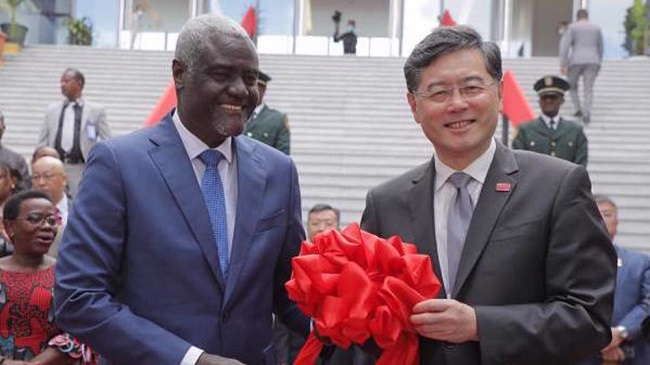
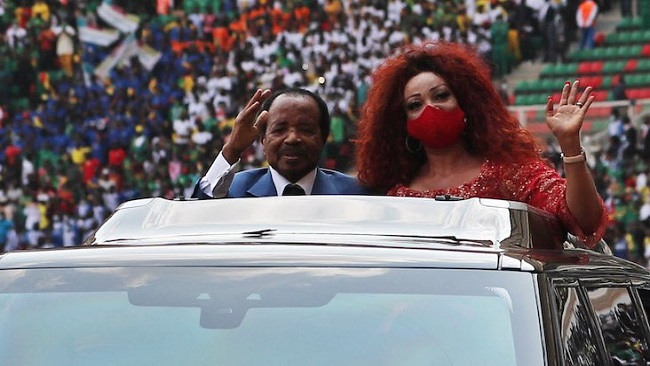


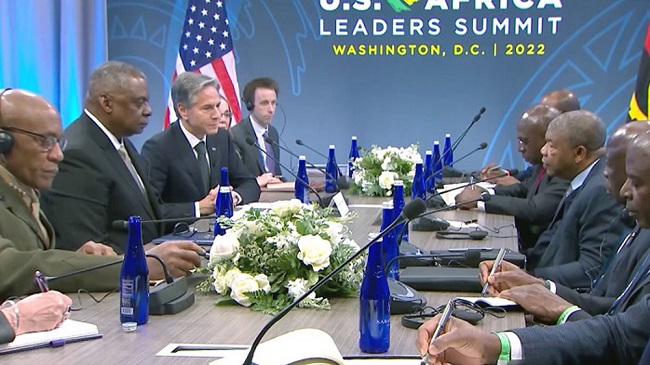
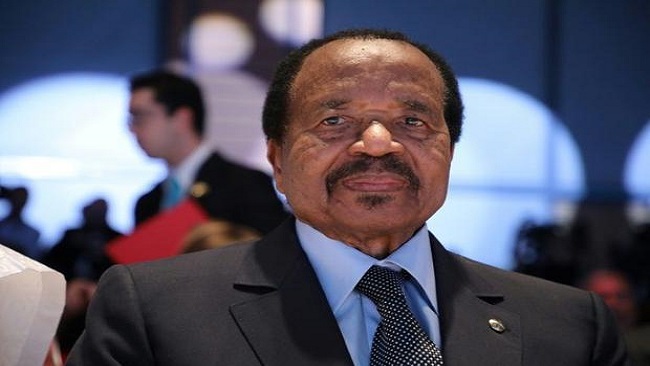

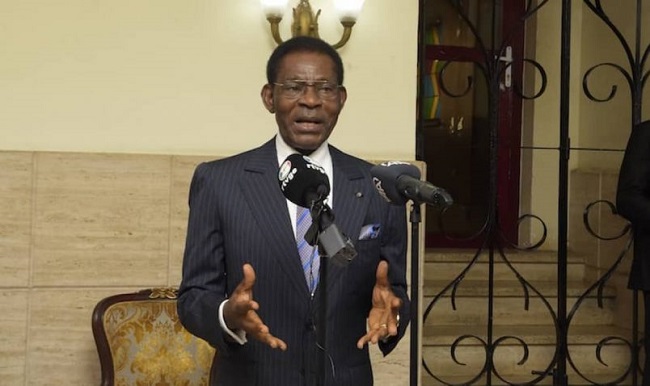
















20, January 2023
Senatorial Elections: Chief Tabetando is not a saint but leave him alone! 0
Since the country’s president, Paul Biya, announced senatorial elections in Cameroon, many reactionaries have jumped into higher gear with a view to destroying those they do not like. For years, we have not heard much that can validly destroy, Chief George Tabetando’s career, but since the elections were announced, an army of enemies has been at work, even accusing the brilliant lawyer of raping a housemaid.
It is hard to trust any human being when it comes to sex, but this allegation against Senator George Tabetando at a time when he wants to run again for the senate clearly points to the fact that some enemies have an ulterior motive, and the objective is clear – destroy a man who loves his people.
Though a CPDM senator, Chief Tabetando of Bachou Ntai has always worked for the development of his people. Chief Tabetando is not perfect and like many Manyu people, he also has an eye for beautiful women. But having an eye for the daughters of eve does not make him a bad person.
In the height of the Southern Cameroons crisis, Chief Tabetando travelled to Mamfe to plead with the young fighters for them to forgive the government and to come out of the bushes so that a peaceful solution to the conflict could be found. He was not ashamed to go on his knees to demonstrate that he was not superior to anybody. Not many top politicians in Cameroon can do that. Leave Tabetando alone!
Why is it that those allegations are only surfacing now? It is alleged that he raped the lady who braided his wife’s hair, and the act took place in the comfort of their home. How come the wife never heard the woman scream or resist the honorable and brilliant lawyer?
Chief Tabetando may be mad, but his madness surely has a method. He knows that he can take his madness away from his family and he is a man who always has his wits about him. Chief Tabetando is a barrister at law, and he understands that such an act could blow up his brilliant career and expose him to ridicule.
The Cameroon Concord News Group is not holding any brief for the honorable senator. It is just seeking to point out that Senator Tabetando’s enemies are at work. Unfortunately, they will not be succeeding this time around. The Cameroon Concord News Group will support any person elected to the senate, but it will not stand by and watch any dirty games designed to destroy a man who has always earned his keep.
Tabetando was a great lawyer, and his former clients can attest to that. As a senator, it is hard to cast him in the best possible light as he is a representative of a party which has failed to meet the glorious expectations of the nation. But as an individual, Tabetando, the chief of Bachou Ntai, deserves our respect. Seeking to sling mud at him will be one big mistake. It is time to walk away from nasty politics!
Dr. Joachim Arrey